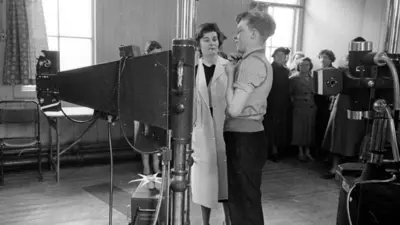We've updated our Privacy and Cookies Policy
We've made some important changes to our Privacy and Cookies Policy and we want you to know what this means for you and your data.
Wales organ law puts 'too much pressure' on hospitals
Hospitals in Wales could struggle to cope with a change in the law to presumed consent for organ donation, a leading health economist claims.
The Welsh government wants a system where people will have to opt-out if they do not wish to donate their organs when they die.
Professor Ceri Phillips from Swansea University said hospitals would be placed under too much pressure.
He said organs could be wasted and some transplants abandoned.
Officials say the change could mean 15 extra donors leaving about 45 more organs for transplant every year.
Mr Phillips told the 91╚╚▒¼ Wales current affairs programme Week In Week Out that there could be long term financial benefits to the opt-out system, such as savings on dialysis treatment for kidney patients.
But he added: "We're already struggling in many hospitals in Wales because of pressure on critical care beds and the knock on effect on theatre time.
"We can't estimate when these potential donors will become available and we could well see a system where it is impossible to undertake the operation and the potential donor might not materialise and the beneficiary will not receive the benefits which the policy and the bill is seeking to ensure."
John Saunders, a consultant who heads an organ donation committee at Nevill Hall Hospital, Abergavenny, is also concerned about the additional pressure on intensive care units.
"Trying to squeeze more through would be difficult and I am sure this is true of all ITUs [Intensive Therapy Units] across Wales," said Mr Saunders, who also chairs the Royal College of Physicians' committee on ethical issues in medicine.
"It does seem there will have to be more investment in intensive care facilities."
He also believes the opt-out system would confuse patients.
Save lives
"Because we're having an opt-in register running as well as opt-out this creates confusion in public mind," he said.
"Despite efforts to inform, this will lead to lower donation rates."
The Human Transplantation Bill is due to go before the assembly for approval in January 2013 and could become law in 2015.
Health Minister Lesley Griffiths says the new system would reduce waiting lists and save lives.
And while doctors will take the wishes of families of dead patients into account they will not have a legal right to veto transplantation.
"Obviously there are lots of legal issues, there are lots of lawyers working this, we have the competence to bring this bill forward and that's what we will be doing," said Mrs Griffiths.
She said 41 people in Wales died while waiting for transplants last year.
The Welsh government will fund ┬Ż5m to promote and introduce the new system but any additional costs required for the retrieval of organs will be met by local health boards.
Around 300 people in Wales are currently waiting for a transplant.
Patient Mitchell Powell, 18, from Swansea, who is waiting for a heart transplant, said: "It's sad to think people are dying and they could be donating their organs, but because they're not other people are dying.
"I don't want that to happen to me. I want to know there are hearts in the bank so there is one for me."
The teenager has already planned his own funeral.
"Because of my heart condition, I've always had something in my mind saying that I'm not going to make it to this age."
His mother Caroline Powell has had to watch him endure a lifetime of hospital appointments and operations.
"He shouldn't be talking about funerals - he should be talking about football."
Top Stories
More to explore
Most read
Content is not available








